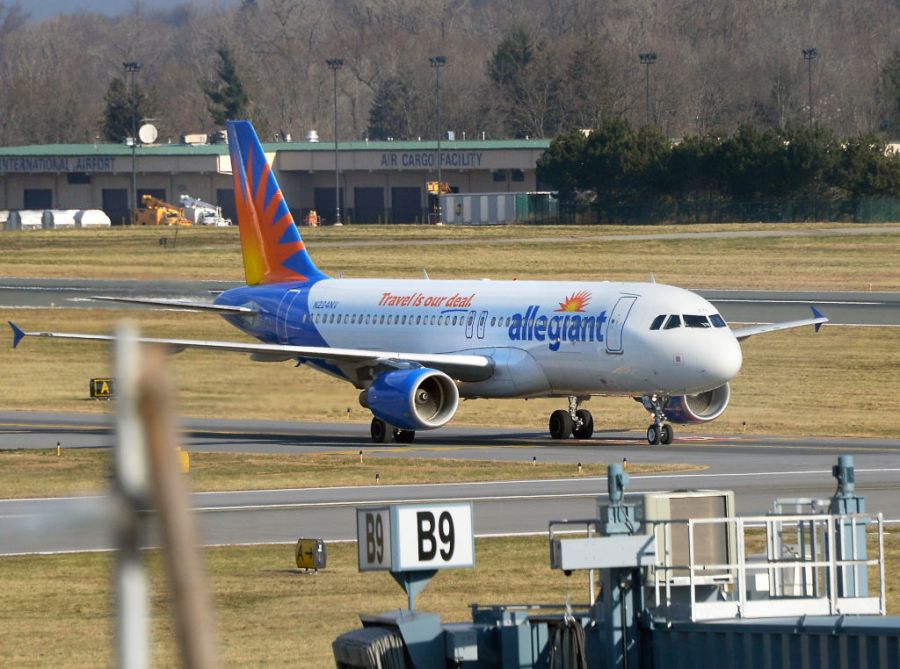
Following the catastrophic collapse of the Francis Scott Key Bridge in Baltimore, Americans are reminded of how heavily we rely on mobility and how easily transportation options can vanish. This serves as a caution that we should not rely too heavily on one universal means of transportation.
Unfortunately, when Americans do consider other ways to travel, specifically flying, they are also reminded of how expensive flight options have become. Those who feel it the most are working-class Americans in small and mid-sized cities where legacy carriers continue to dominate the market and harm everyday Americans’ ability to fly affordably.
A city significantly impacted by this trend is Myrtle Beach, South Carolina. Allegiant Airlines, an ultra-low-cost carrier, has recently announced its expansion of 4 new nonstop flights from Myrtle Beach International Airport, a step in the right direction for flight accessibility. However, travelers are still limited in the variety of direct, international flights, especially in small and mid-sized American cities.
The people of South Carolina, whom I served for many years in the state legislature, are just a small fraction of the many Americans who suffer greatly from high costs and limited direct options to popular tourist destinations such as Mexico.
Joint ventures between ultra low-cost carriers hold the solution to this problem. Unfortunately, such affordable flight providers have been suspended from partnering and thus competing in the market. Ironically, the reason cited for this suspension is the monopoly that large airline carriers have over the industry.
Joint ventures between affordable airlines would open up opportunities for fresh competition and making air travel more accessible and affordable for a broader range of travelers. Despite this, the Department of Transportation has put a hold on proposed joint ventures between low-cost carriers, hindering the development of a more affordable, competitive, inclusive, and sustainable aviation industry.
The Biden administration continues to suspend these joint ventures over broader geo-political issues between the U.S. and Mexico, justifying its decision as a curb on the increasingly monopolistic nature of the airline marketplace. Although the monopolistic behavior is real, the administration fails to realize that these policies are making it worse and actively harming consumers. Joint ventures between low-cost carriers would increase accessibility, reduce fares, and create more non-stop options for all Americans.
These joint venture applications would ensure that American and Mexican travelers have greater access to affordable airfare options between the two countries. By fostering stronger economic and cultural ties between the U.S. and countries worldwide, such partnerships can bridge gaps and create new opportunities for people to explore diverse destinations. But most importantly, increased connection can make it easier for those visiting friends or family living across the border.
Transportation Secretary Pete Buttigieg understands this well. He and his team know that there are a multitude of other tools in their “toolbox” to put pressure on the Mexican government without harming U.S. consumers. Buttigieg and the Biden administration have an opportunity to take leadership on this issue and push through the approval of joint ventures that would increase airline competition, increase accessibility, and reduce costs for travelers.
Joint ventures between ultra-low-cost carriers thus have the potential to revolutionize air travel while also providing the Biden administration an easy win.
Biden and his administration excel at protecting the interests of the American people. By approving these joint ventures, they face a valuable opportunity to strengthen bilateral relationships with countries around the world. It is imperative that the Biden Administration and the DOT set aside geo-political considerations. By approving these joint ventures, the administration would demonstrate a genuine commitment to the values it has always upheld.
Bakari Sellers, a political analyst on CNN, served as a Democrat in the South Carolina House of Representatives for the 90th District from 2006 to 2014, becoming the youngest African American elected official in U.S. history at the age of 22.
Copyright 2024 Nexstar Media Inc. All rights reserved. This material may not be published, broadcast, rewritten, or redistributed.














